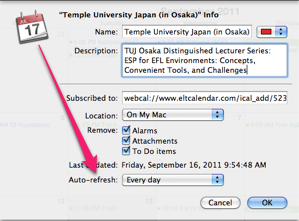Temple University Japan:
Who Put the "Qual" in Qualitative Research? A Brief Introduction to Qualitative Research
Date: Saturday, March 1st, 2025 Time: 9:00 AM - 12:00 PM
Speaker: Dwight Atkinson (University of Arizona, U.S.A.)
Description:
This seminar will be conducted by 3-hour online Zoom sessions for four days: Saturday, March 1, Sunday, March 2, Saturday, March 8 and Sunday, March 9 from 9:00 a.m. to 12:00 p.m. (JST). Students taking this seminar for credit must attend all four days. Students can add/drop this seminar course by 13:00 on Saturday, March 1. The pre sign-up (or course registration for those who are taking this seminar for credit) is required for anybody attending the public session on Saturday, March 1 from 9:00 a.m. to 12:00 p.m. The sign-up process must be completed through "Distinguished Lecturer Series Seminar Sign-Up Form" that is available on TUJ Grad Ed website. The sign-up deadline is Friday, February 28, at 12:00 p.m. The public session Zoom link will be provided to those people who completed the online sign-up (or course registration) process by 18:00 on Friday, February 28.
It is commonly assumed that there are two kinds of research in applied linguistics--quantitative and qualitative--based on the kinds of data collected and how those data are analyzed. This view is not wrong, but it is inadequate. This seminar examines the distinctive worldviews, epistemologies (theories of how knowledge is made), and histories of qualitative research generally, as well as two specific qualitative approaches widely used in educational research: 1) "situated," ethnographically oriented research; and 2) the more recently developed multimodal analysis of video-recorded social interaction. The situated approach seeks to embed researchers maximally in their participants' lifeworlds in order to attain an "experience-near" perspective on them. Various conceptual and methodological research tools originating in this approach have been generalized to other qualitative approaches, making them to some extent detachable and usable for other research purposes. The multimodal interaction approach relies on detailed analysis of the combined communicative use of language, gaze, gesture, and other embodied actions in sociomaterial settings and speech events like classrooms, Zoom meetings, and conversations. It has roots in sociological and anthropological theories of social structure as substantially "bottom-up"--i.e., as constructed moment to moment in human interaction. A third qualitative research approach--"critical qualitative research"--will be briefly considered in comparative perspective with the above approaches. Activities and assignments for this seminar will include small-group discussions, readings, data analysis, and a final paper.
Organization: Temple University Japan
Cost: free
Venue: Online https://www.tuj.ac.jp/grad-ed/seminars
Location: Online, Online Events, Online Event
![]() Add this to iCal
Add this to iCal
![]() (Need help?)
(Need help?)
![]() Add to Outlook
Add to Outlook
![]() (Need help?)
(Need help?)
Contact Temple University Japan
Website: www.tuj.ac.jp/tesol/seminars/
Email QR Code:
Phone (work): 03-5441-9800







